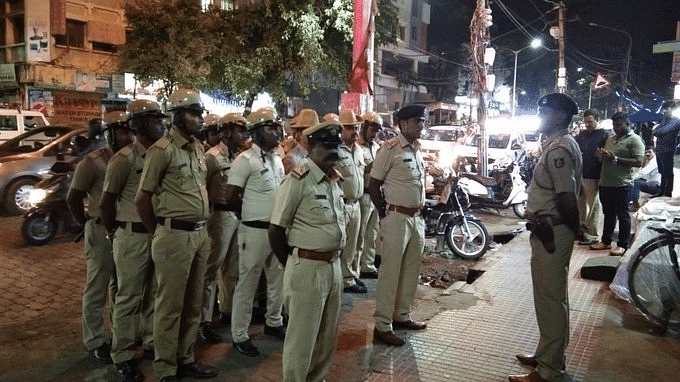Bengaluru: Bengalis living in Karnataka’s capital are worried that the police crackdown on illegal Bangladeshi immigrants is resulting in them getting painted with the same brush.
The Bengaluru police arrested 60 Bangladeshis who had been living in the city illegally on 27 October. The police action was preceded by the BJP announcing that its government would not implement the National Register of Citizens in Karnataka, and would instead create a database of undocumented immigrants. Then, the Karnataka High Court, on 23 October, asked the police what steps they had been taking to deport such immigrants.
The arrested immigrants have been kept at a detention centre in Bengaluru, awaiting deportation.
But soon after the crackdown, apartment complexes around south and south-east Bengaluru informally announced that they would not engage people who they “suspect could be Bangladeshis” until the police officially clear their credentials. There have been several instances of residents requesting recruiting agencies not to send Bengali-speaking maids or security personnel to work at apartment complexes.
Organisations working with such workers say a sense of fear has crept into documented Bengali-speakers too, as they are being looked at suspiciously.
“The language is different, the way it is spoken by a Bengali and a Bangladeshi. It is important to differentiate between the dialects,” said a Bengali-speaking resident who did not want to be named.
“A knee-jerk reaction like this will not help. Rather, the police needs to help verify the antecedents of the domestic workers.”
Bengali associations swing into action
This inability to distinguish between the dialects has forced Bengali associations in Bengaluru to try and explain the difference to residents.
“This is spoiling the image of Bengalis in Bengaluru. These are illegal immigrants who speak Bengali but are not Bengali; they are Bangladeshis who don’t have a valid residential proof,” said Rudra Shankar Roy, who has worked with several Bengali associations in Bengaluru.
“These are the maids and daily wage workers who cross the borders illegally and try to get some Indian identity document to try and establish themselves as Indians. Those are the people who are creating problems. Let them not be confused with Bengalis. There are Bangladeshi workers here who don’t have valid work authorisation… That is the loophole and that problem that needs to be addressed,” Roy said.
Also read: Medical college, roads, irrigation plans — how Yediyurappa is ‘campaigning’ for rebel MLAs
Police trying to sensitise residents too
M.N. Anuchet, Deputy Commissioner of Police, Whitefield, who was part of the crackdown, said this distinction was exactly what the police had been trying to sensitise residents about. He added that residential associations should make a conscious effort to approach the police and get the names and addresses of domestic workers verified.
“There is no directive from the police that they should not be employed. We have just said that people should be on the lookout for illegal immigrants and report them to the police,” Anuchet told ThePrint.
“If they suspect that there is an illegal immigrant, let them approach us and we will verify it. That way it will help the employer and the employee,” he said. “Some associations have taken a call they will not hire anybody who speaks Bangladeshi Bangla… That’s their private decision, we have no role in that.”
Sister Sahaya, who works with a trade union for domestic workers, said all trade unions in the city have decided to come together under one umbrella and help the police and residents identify who is an illegal immigrant and who isn’t, and also remove the “Bangladeshi stigma” that has crept in.
Also read: Modi-Shah’s hyper-nationalism is making India insecure when it is actually most secure
